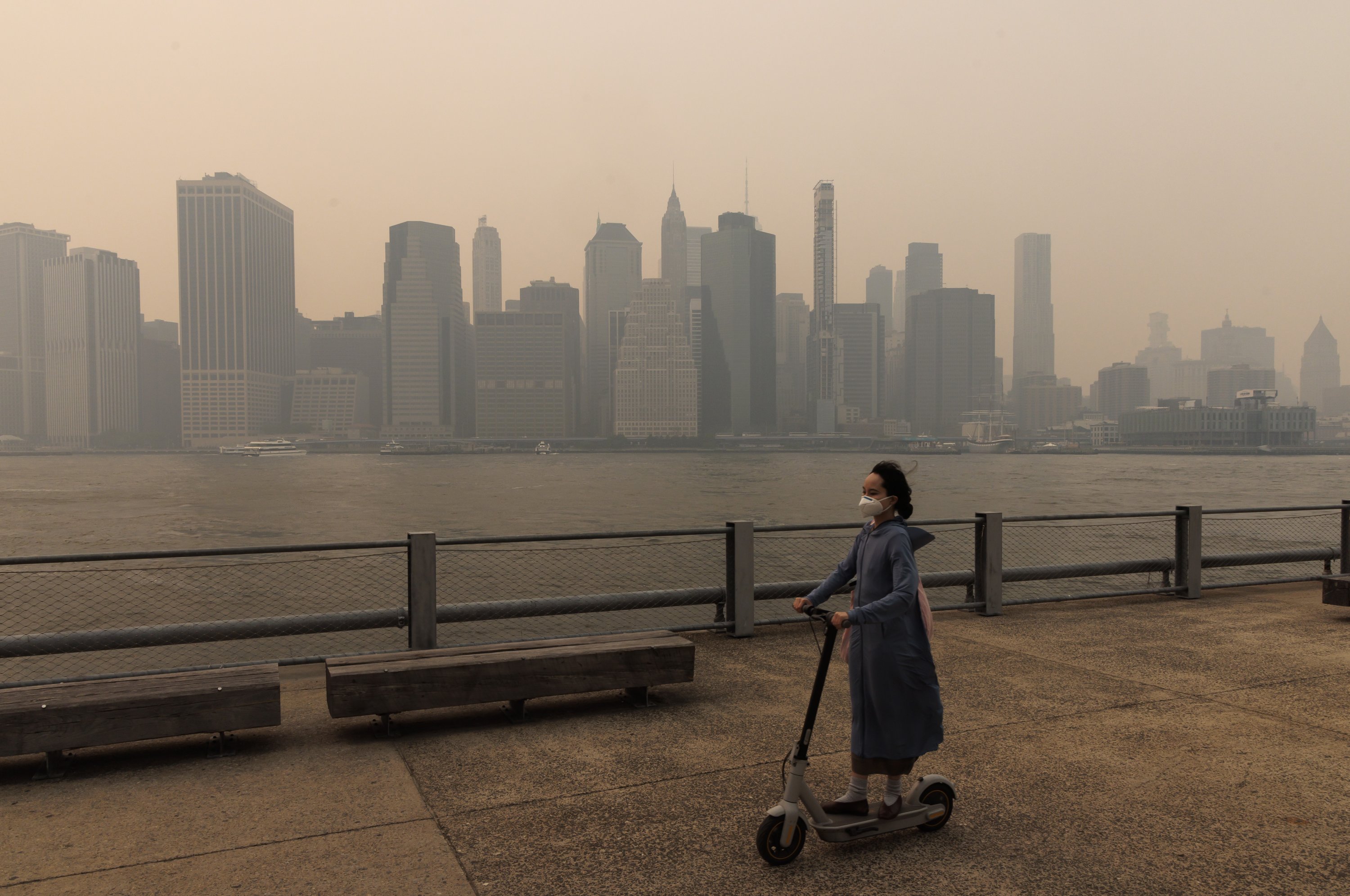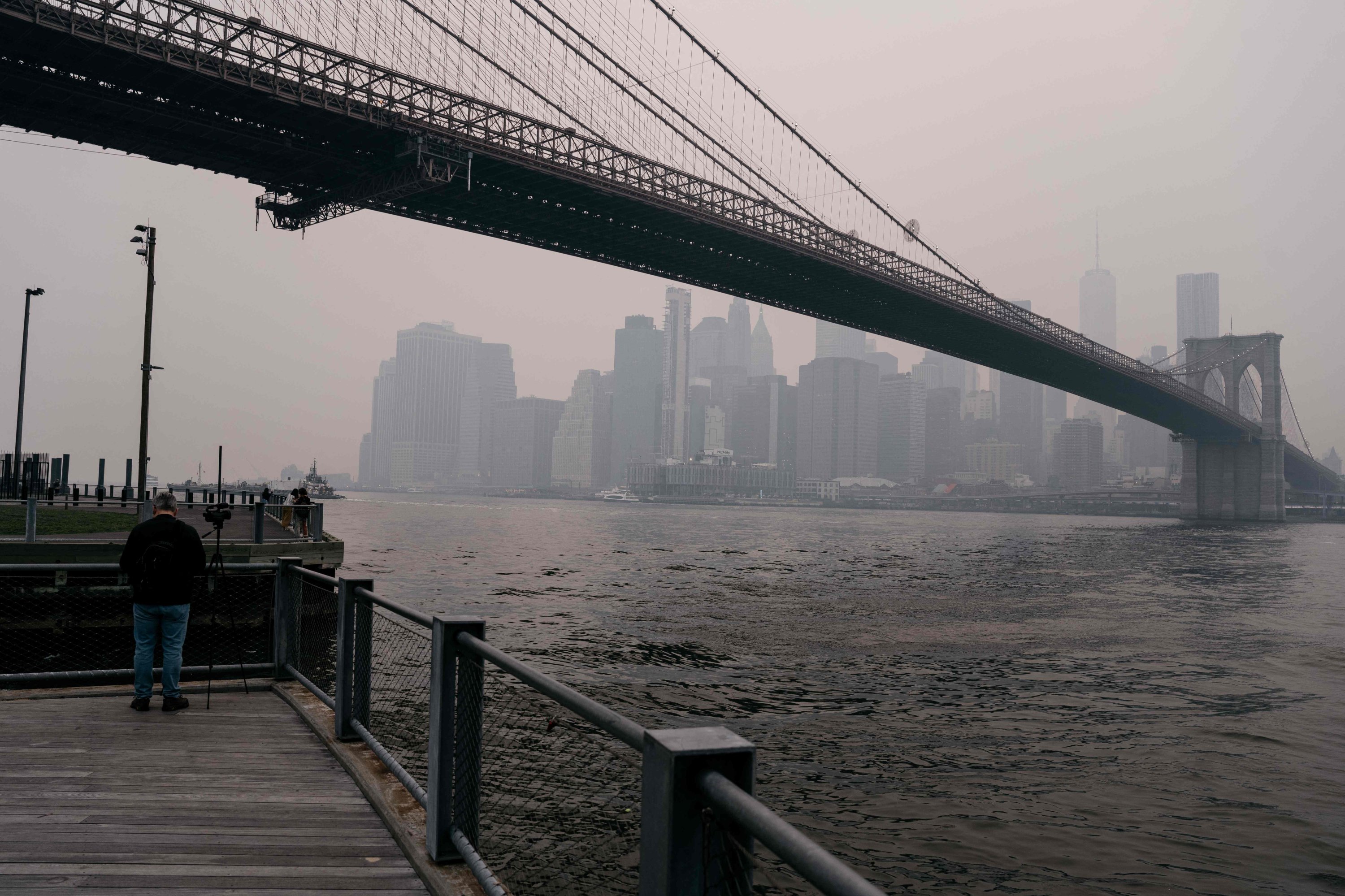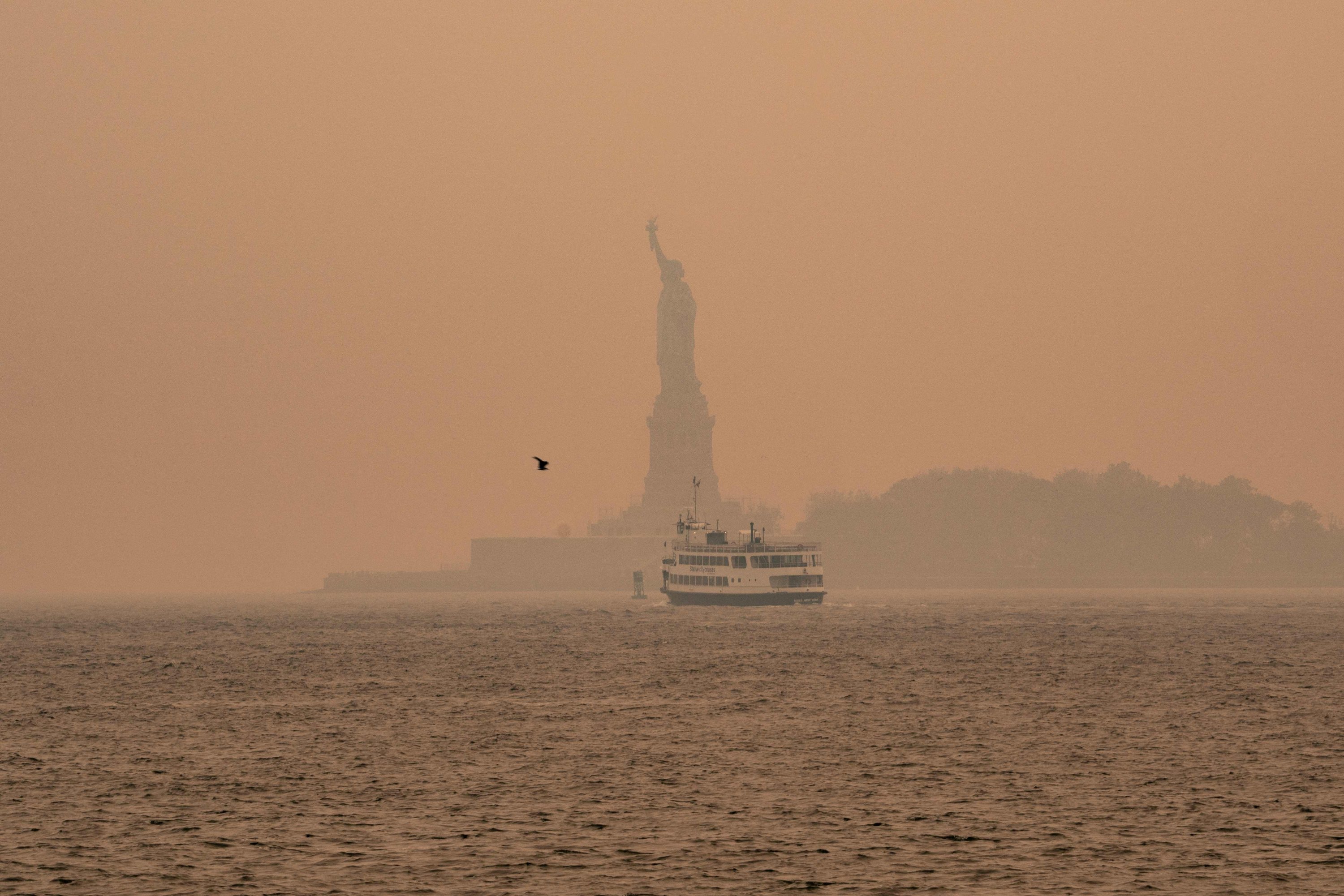© Turkuvaz Haberleşme ve Yayıncılık 2026
Millions of people were told to mask up after smoke from Canadian wildfires shrouded New York in a record-breaking apocalyptic smog Wednesday.
The unprecedented forest fires also triggered air pollution warnings in cities along the U.S. East Coast and forced thousands from their homes in Canada.
More than 20,000 people have so far been displaced while about 3.8 million hectares of land in Canada have been left scorched. Prime Minister Justin Trudeau described this wildfire season as the country's worst ever.
More than 100 million people across the northeastern United States and extending west to Chicago and south to Atlanta, were under pollution warnings after the smoke drifted hundreds of miles from Canada, the U.S. Environmental Protection Agency (EPA) said.
The thick pollution cast an eerie, yellowish glow over the Big Apple's famous skyscrapers, delayed flights and forced the postponement of sporting events.
"It smells like someone is doing a barbecue," said Nicha Suaittiyanon, a 30-year-old tourist in New York City from Thailand, who complained of watery and itchy eyes.
Mayor Eric Adams told New Yorkers to limit outdoor activity to "the absolute necessities," adding: "This is not the day to train for a marathon."

All outdoor activities at New York City's public schools were suspended, as the smog enveloped the Statue of Liberty and the Manhattan skyline.
The Federal Aviation Administration said it had slowed traffic to and from the city's airports due to reduced visibility.
U.S. President Joe Biden said on Twitter that more than 600 firefighters along with other personnel and equipment had been sent to Canada to help battle the blazes.
More than 11,000 people have already been evacuated in Quebec, and another 4,000 were expected to flee by the end of Wednesday, said the province's Premier Francois Legault.
Biden spoke with Trudeau on Wednesday and offered "additional support to respond to the devastating and historic wildfires," according to the White House.
Trudeau said he had thanked Biden, tweeting: "These fires are affecting everyday routines, lives and livelihoods, and our air quality.
"We'll keep working ... to tackle climate change and address its impacts."

Scientists have warned that rising temperatures are increasing the risk of extreme weather, including the hot, dry spells that often fan wildfires.
White House spokesperson Karine Jean-Pierre said the situation was an "alarming example of the ways in which the climate crisis is disturbing our lives."
IQAir.com, which tracks air quality around the world, said New York – normally known for blue skies – was enduring the worst air quality index (AQI) of any major city in the world.
New York is normally outside the 3,000 worst cities for pollution, according to the website.
Hugh Hill, a 43-year-old lawyer, said his throat had been stinging from the harmful haze, which he likened to the smell of a wood-burning fire.
Like many New Yorkers, he chose to cover his face while out walking his dog in Central Park, normally Manhattan's green lung.
AirNow, another monitor, said the Big Apple's AQI reached a hazardous level of 413 at 5 p.m. (9 p.m. GMT), just short of the scale's maximum of 500.
NASA scientist Ryan Stauffer told AFP that New York had broken its previous AQI high, set 21 years ago.
New York State Gov. Kathy Hochul called it an "emergency crisis" that could last several days.
Thousands of people in the parts of Canada worst affected by the fires prepared to leave their homes for safety.
As the Quebec town of Chapais prepared for evacuations, resident Daniel Harvey told local media that he had gathered important papers, hard drives and photos.
"We don't know what will happen, so we have to act as if" everything could burn, he told reporters.
South of the border, vast stretches of the United States came under air pollution warnings and a wide range of public activities were hit.
Major League Baseball postponed Wednesday's game between the New York Yankees and the Chicago White Sox as well as the Phillies' home game against the Detroit Tigers due to poor air quality.
The WNBA and the National Women's Soccer League also announced postponements.

Music organizers canceled the opening night of a concert series in Brooklyn set to feature Corinne Bailey Rae.
And the actress Jodie Comer walked off the stage of her one-woman Broadway show "Prima Facie" after just 10 minutes, citing breathing difficulties, and was replaced by an understudy, a spokesman for the production told AFP.
In Washington, authorities warned that the air quality was "unhealthy for people with heart or lung disease, older adults, children and teens" and canceled all outdoor activities in public schools.
Back in New York City, home to 8.7 million people, Jack Wright, a 76-year-old retired lawyer, said the pollution had "kinda generated a cough all day long."
"I quit smoking 50 years ago, but it's a kind of a cough I would have when I was smoking," he told AFP, braving a walk along the East River.
Not everyone, though, was disturbed by the acrid stench that hung over the city of 8.7 million residents.
"It does not bother me," said 78-year-old retiree Pamela Roderick.
"You know, New York often smells strange."
